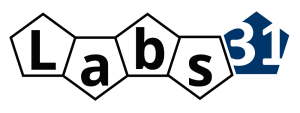Laboratory types
There are several types. You could use different ways to classify them. One way is to classify them by the type of work done. Some of those are for production, quality check (QA/QC) on the production process and on the in and outgoing materials (e.g. oil and gas, food, plastic). While designing a laboratory you need to consider what type of laboratory it is (going to be).
Research and development (R&D) laboratories:
Research laboratories are often unfairly characterized as "out of date" or outdated. They provide the backbone for many companies, providing support to entire departments rather than just one division of their business model - which can be seen in modern-day research operations across various industries like technology and pharmaceuticals.
Medical or Clinical laboratories:
A medical laboratory is a place where doctors and other health professionals do tests on samples from patients in order to provide them with information about their health. Mostly found in hospitals and clinics or pharmaceutical companies.
Biosafety Laboratories:
Scientists use biosafety labs to study contagious materials safely and effectively. These state-of-the-art facilities are designed not only for researchers protection from contamination but also to help prevent microorganisms from entering our environment as well! Focused on working with bacteria and viruses, they can be classified as ML-I, ML-II and ML-III, BSL-3 and BSL-4
These are for doing basic research or product development. This can range from physics to chemical to medical
Chemistry laboratory
Most laboratories are used for chemistry. Substances that do not occur in nature are produced, and substances that can be purified exist naturally or have been extracted from something else through laboratory processes like distillation with boiling point between 315 -heretical-300 Kelvin. The production of chemicals takes place legally but also illegally which means it has potentially harmful side effects on humans if handled incorrectly. It is important to know how much solvents you're using while working so no Mishandling occurs due process over safety protocols
Physics laboratory
A physics laboratory is more than just a place for scientists to do their experiments. It's also home to all sorts of cool equipment that can control light or slow it down, create materials without resistance (superconductors), investigate how objects behave under pressure - you name it!
Biological laboratory
Biology is another science that is often studied in laboratories. In these laboratories, research is carried out into, for example, fungi, bacteria or virology (microbiology laboratories). Another form of a biological laboratory is botany, where tests are carried out on plants. In the Netherlands, many of these laboratories serve to grow better crops, for example.
Other
And you also could name Cleanrooms. Special environments with the focus on minimizing pollution/contamination.
How can we help you?
Let us get acquainted and talk about your challenges, looking for the best possible solution for you and your company!
We can help you with consultancy, project management and turn-key laboratory projects.

